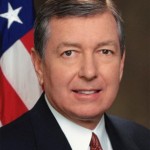The Most Important Public Employment Law Case: Pickering v. Board of Education, 391 U.S. 563 (1968)
 When most hear about public employment law, they believe the topic involves unions and collective bargaining between government employers and public employee unions. This is not correct. Although public-sector labor law is an increasingly important area of inquiry given the robust union movement in the public sector, an equally important area concerns the constitutional rights of public employees. This is public employment law. It is important area of the law both because only public employees, with a government employer, have the protections of the federal constitution under the state action doctrine and because of the sheer size of the public workforce in this country: currently around 23 million workers or about 17% of all workers in the United States.
When most hear about public employment law, they believe the topic involves unions and collective bargaining between government employers and public employee unions. This is not correct. Although public-sector labor law is an increasingly important area of inquiry given the robust union movement in the public sector, an equally important area concerns the constitutional rights of public employees. This is public employment law. It is important area of the law both because only public employees, with a government employer, have the protections of the federal constitution under the state action doctrine and because of the sheer size of the public workforce in this country: currently around 23 million workers or about 17% of all workers in the United States.
So within this specialized area, I believe the most important case is the public employee free speech case of Pickering v. Board of Education, decided by the United States Supreme Court in 1968. On October 8, 1964, the Board of Education of Township High School District 205 in Will County, Illinois, fired teacher Marvin Pickering for writing a blistering editorial about the Board and Superintendent in the local Lockport Herald on the previous September 24th. The letter concerned a series of four tax referenda initiated and supported by the Board of Education which sought to allocate tax money for a variety of school-related purposes. Pickering believed that the Board and Superintendent had bungled the matter and that tax money was better spent on teachers’ salary, funding for school lunches for non-athletes, and educational needs generally.
Not surprisingly, the Lockport School Board viewed Pickering’s public statements as insubordination.

